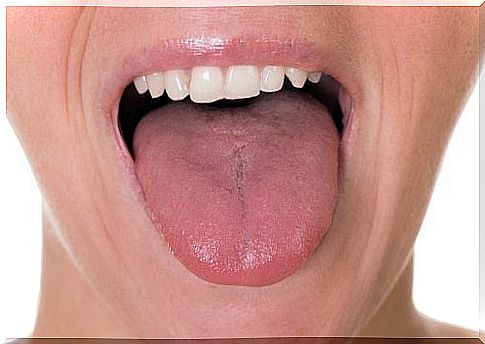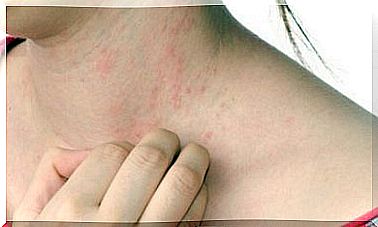5 Initial Symptoms Of Tongue Cancer
Common symptoms of tongue cancer can occur with other diseases as well. If you have any doubts, you should consult a specialist in order to receive an early diagnosis and thus avoid complications.

Tongue cancer is also known in medicine as oropharyngeal cancer and is one of the most common cancers. Often (former) smokers or alcoholics suffer from this disease. Learn more about the symptoms of tongue cancer today .
Statistics indicate that men are more likely to develop tongue cancer than women, with the disease being diagnosed more frequently in recent years.
As with any disease, certain signs can be seen in the early stages. In this article we describe five initial symptoms of tongue cancer. These are only possible clues, however, and it does not mean that you actually have tongue cancer if these symptoms are present. If necessary, have a thorough examination by your doctor, who can make the correct diagnosis.
Tongue Cancer: Risk Factors

Just as people with a family history of diabetes may develop the disease at some point in their life, there are other factors, such as lifestyle and diet, that can play a role. This is also the case with tongue cancer. We therefore list some of the possible risk factors:
Tobacco and alcohol consumption
It is well known that tobacco and alcohol can lead not only to tongue cancer, but also to numerous other diseases such as lung cancer, cirrhosis or stomach cancer.
Active smokers, as well as alcohol drinkers, are more likely to develop cancer cells in the mouth over time.
nutrition
When there is a lack of fruits and vegetables in the diet, it can affect the immune system and lead to more common health problems.
Human papillomavirus (HPV)
People who are infected with HPV are at greater risk of developing tongue cancer. Because the human papillomavirus is directly associated with the development of tongue cancer.
Possible symptoms of tongue cancer
1. Sores on the tongue as an indication of tongue cancer
Ulcers, sores or aphthous ulcers on the tongue that are painful and difficult to heal are among the first symptoms of tongue cancer. Most of the time, mouth sores are very uncomfortable and painful, but in this case they are particularly sensitive and occur frequently.
However, they should not be confused with normal mouth ulcers or herpes. Therefore, pay particular attention to the intensity and duration of the pain.
2. Pain suggestive of tongue cancer
Tongue cancer can cause pain not only on the tongue, but also in the mouth and throat area.
- Often there are discomforts with everyday activities, such as drinking or chewing food.
- Pain when swallowing or chewing could point to this pathology, but it could also simply be a throat infection, tonsillitis or an allergy.
Therefore, observe the intensity and duration of the pain. If it lasts longer than a week and there are other symptoms, such as spots on the tongue, the best thing to do is to get a medical check-up.
3. Spots on the tongue
Spots on the tongue can also indicate tongue cancer. They can be white (leukoplakia) or red (erythroplakia) and last for more than two weeks. If you notice these spots, see your doctor to examine you to determine the exact cause. If necessary, the specialist can do a biopsy to analyze the spots in detail.
4. Possible symptoms of tongue cancer: bad breath
In addition to the above symptoms, bad breath can also occur. Even if this disappears for a short time after brushing your teeth, it reappears quickly and is often accompanied by a taste of blood.
5. Blood on the tongue
Many mistake bleeding tongue for bleeding gums or bleeding caused by a mouth ulcer. However, it is very important to determine where the blood is coming from.
- After you eat, clean your tongue with cotton wool to see where the blood is coming from.
- If bleeding occurs regularly, you should have a doctor examine you.
Conclusion
There are several symptoms that can indicate cancer of the tongue, but these do not always occur. It must also be taken into account that the symptoms mentioned could also be due to other diseases. If you suffer from it, the American Society of Clinical Oncology recommends that you see a dentist who can do a routine check-up.









